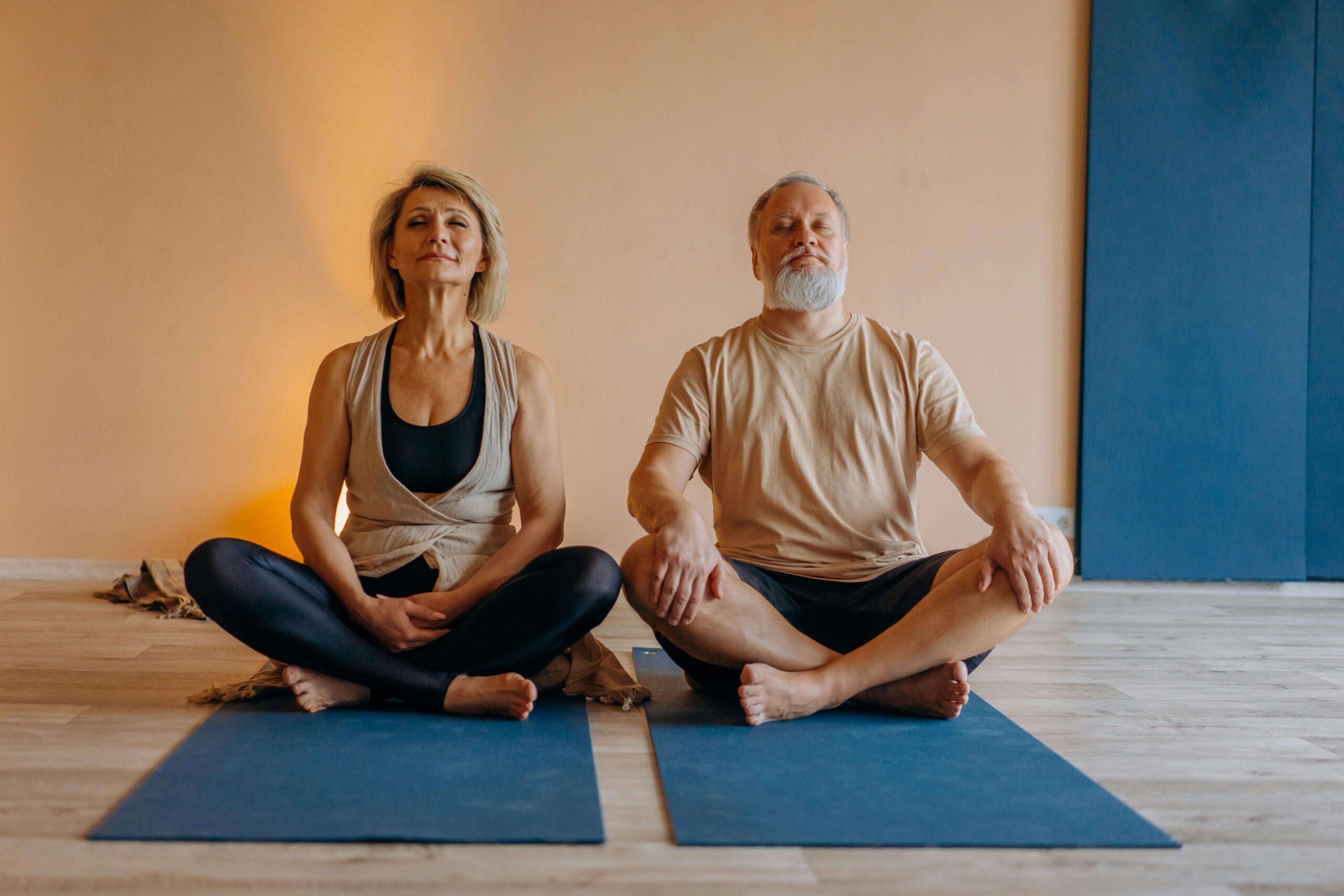My Day to Day
Reflect on how you are staying physically active, socially connected, and emotionally well. If you are experiencing changes in your health, consider how support from others and new ideas could contribute to your well-being.
Active Living and Your Health

Activities
Active Living & Staying Connected

Tip
Reflect on your day to day. Think and talk to others about ways to maintain or improve your physical and social activity. Read through the suggestions below and check out the ideas, suggestions, and programs for seniors in the resource kit.
Whether you are 65 or 85, staying physically active and socially connected can help prevent isolation, anxiety, confusion, and depression. Just as important, it improves your physical and emotional health, immune system, strength, flexibility and balance. Sometimes changes in your personal and living situations can impact your physical and social activities. Here are some suggestions to explore.
Explore ways to stay mentally, physically and socially active.
Cognitive Activities
- Find ways to participate in games, puzzles, crosswords, Sudoku, and memory challenges to improve problem-solving.
- Learn something new like a language, musical instrument, or skill to help maintain brain functioning.
- Engage in regular reading – books that challenge your thinking or introduce new ideas.
- Aim for 7-9 hours of sleep per night. Sleep is crucial for memory, learning, and cognitive functioning.
Physical Activities
- Before starting a new exercise program, consult your physician for guidance.
- See a physiotherapist to create a plan if you have mobility issues or chronic pain.
- Incorporate daily exercise routines, such as yoga, exercise classes, music-based activities, dance, or walking with friends.
- If needed, learn ways to modify exercises (such as chair yoga), even if for a short time.
Social Connections
- Think about the times of day you want to be social and when you want to be on your own.
- Stay connected to people through phone calls, computer calls, and emails.
- Explore transportation options. Consider asking friends to get you to activities and to visit others.
- Engage in small interest groups such as crafts, pottery, art, or cards (Bridge, Mahjong).
- Start a coffee/ lunch group that meets regularly – incorporate walking to the visit.
- Explore options for travel that meet your needs for physical activity, social connections, and safety.
- If hearing, pain, or other changes are an issue for you – let others know so they can support your needs.
Community Groups
- Think about community groups, cultural gatherings, or other groups that foster connections.
- Explore activities and recreation programs for seniors.
- Consider volunteering in your community and with charities of interest.
- If you have more extensive needs, consider day programs at senior centres.
Transportation & Getting Around
Driving offers freedom and independence, and losing that ability can be challenging. Changes in your health, medications, or hospitalizations may affect your ability to drive. Your family or your physician may suggest a driving assessment, which can be a difficult conversation for both you and your loved ones. However, prioritizing safety for yourself and others is crucial. When the time comes, consider alternate transportation options.
Learn about a Driving Assessment in the resource kit.
In BC, it is a requirement to have a Drivers Medical Examination’ completed by your physician or nurse practitioner at 80 and 85 years of age and then every two years after that.
Talking about a Driving Assessment
Transporation Options & Services in BC
Visit the resource kit for more information on these transportation options.
Travel Assistance Program (TAP)
The travel assistance program (TAP) is a refund program for travel to specialist appointments, tests, or surgeries outside of your community. If you qualify, you need to get a signed letter from your physician and the TAP form before the appointment. Call TAP days before your appointment to get a confirmation number.
HandyDART Registration
Learn about HandyDART for yourself or someone you are supporting. Door-to-door shared ride services are available for people with physical or cognitive disabilities.
Special Parking Permit
Learn how to get a special parking permit (SPARC), even for a short time. A physician or nurse practitioner must complete part of the application in person. Print the form, fill it out, and then bring it to the visit for completion.
Community-based Transportation
Ask friends, neighbours, and family members to help you get to activities. Add ‘drivers’ to your care partners list including the days and times they are available. Explore transportation options unique to your community. Check out Seniors on the Move for different community-based services.
Planning for Nutrition & Meal Support
As we age, food choices, portion sizes, and mealtimes often change. Smaller portions and lighter meals at the end of the day can improve energy levels, digestion, and sleep. Health or physical changes may make meal prep more difficult, and the loss of a partner who handled cooking can affect meal routines. Consider your current nutrition and when you might need meal support.
Favorite meals and snacks
- What are your favorite meals (breakfast, lunch, and dinner), snacks and beverages? At what time of the day?
- Are you currently taking any vitamins, herbs, or supplements? Make sure they are listed on your medication list in your health profile.
- How much fluid do you drink each day? Have you been directed by your physician to limit or measure your fluid intake?
Food allergies and sensitivities
- Are there any foods that you have allergies or sensitivties to?
- Do you need to avoid or limit foods, spices, herbs or supplements because of their interaction with your medications?
- Post a list on your fridge of all the items you should avoid, list them in your health profile, and share it with your care partners.
Grocery Shopping
- Do you have care partners or neighbours who can help with shopping as needed?
- Are there online ordering and grocery delivery services in your area?
Meal Preparation
- Do you need assistance with preparing your meals?
- Do you have safety issues to consider – forgetting the stove on, unsteadiness on your feet, or falls?
- Are there care partners who could provide prepared meals?
- Are you aware of meal support services available in your community?
- Add your favorite recipes and information on meal support services to your Mywell Health binder.
Dietitian Guidance
Tip
In BC, you can call or email a dietitian with your dietary questions. Call 811 at HealthlinkBC to speak to a dietitian. You can also send an email for specific dietary questions and concerns.
Medications & Other Daily Records
Your physician or health care professionals may suggest you keep track of your medications, weight, exercise, diet/ nutrition, fluid intake, lab results, pain levels, blood sugar levels or A1C, blood pressure and more.
Explore ways to keep track of your health.
- Ask you physician what you should check on daily, weekly, or monthly.
- Use a print, phone, or online calendar to make notes of the items you are monitoring.
- Use the ‘notes’ app on your phone to record any new symptoms or changes you are experiencing in your health.
Using a Medication Record
- Regularly check that your medication list in your health profile is up-to-date.
- Review your medication list and any over the counter drugs, herbs, vitamins, or supplements you regularly take with your physician or nurse practitioner every year.
- Use pill boxes or blister packs from the pharmacy if you have trouble remembering whether you have taken your medications.
- Consider using a medication record to help you mark off the medications you take each day. Include the name of the medication, dosage, time taken, and any special instructions (ie. with or without food). Initial who gave the medication.
- Download the Medication & Daily Records templates or create your own. Keep copies in your Mywell Health binder.
My Daily Activities & Personal Needs
Ideas to support your activities and personal needs.
- Understand that needing care and personal support may be temporary.
- Talk to family and friends about help you might need.
- Choose one person, such as your health advocate, to list the daily activities you need support with, including when you need it, who can provide it. Think about daily activities (ADLs) such as shower, meals support, or taking medications), and the details of how you want them to help.
- Know that having a written plan ensures you do not have to repeat yourself and gives you control over your day.
Tip
A simple list of daily tasks, preferred timing, and how a person likes each task done can provide peace of mind. If caregivers are involved, this list can be expanded into a personal care plan found in the resource kit.
Message to Mywell Users
You can download the entire ‘My Day to Day ‘ module as a fillable PDF. After filling it in, save it digitally to your Mywell files for online or phone access, or print it to add to your Mywell Health binder.
<- Back to Health Planner
Medical Emergency
If you have a medical emergency call 911 immediately. Do NOT use the website or planner for medical emergencies. If you have a medical concern, call your physician or health care professional.
Resource Kit
As you are completing your health and lifestyle activities, you might come across terms & words that are new to you. Click on the highlighted terms to visit the Resource Kit for definitions, educational materials, links to websites, videos, and more!
Your Data is Your Data
Mywell Health does not store your personal health information. We do not provide online storage. Download the planner sections and choose what works best for you:
- Save your PDFs in your own personal online storage space.
- Print your PDFs and put them into a health binder.